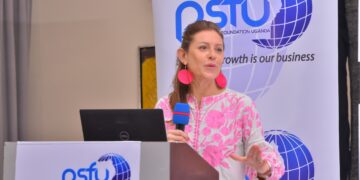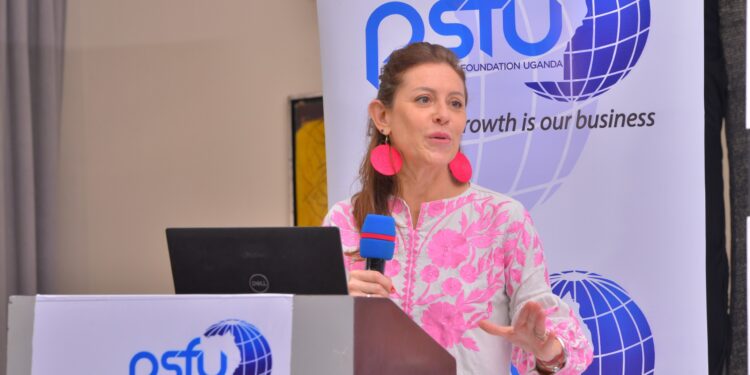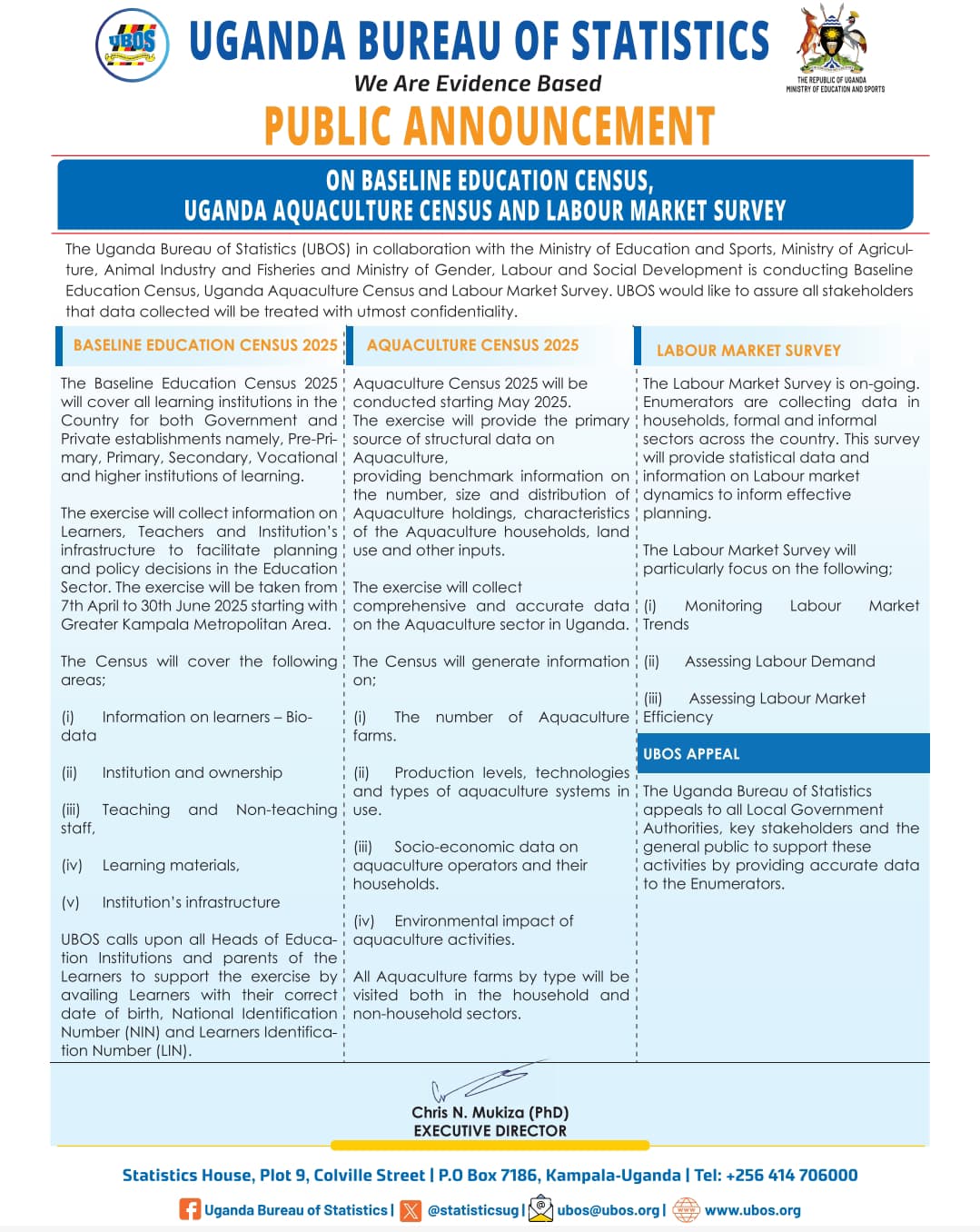The Private Sector Foundation Uganda (PSFU) held its National Post-Budget Dialogue at Protea Kampala Hotel on Monday, gathering key stakeholders from the government, the private sector, development partners, and international agencies.
The event, held under the theme “Unlocking Investment and Job Opportunities through Commercial Agriculture, Industrialisation, Digital Transformation, and Market Expansion”, served as a crucial platform to evaluate the ongoing policy advocacy, share progress, and chart the way forward to foster Uganda’s economic growth and job creation.
Ramathan Ggoobi, the Permanent Secretary and Secretary to the Treasury, Ministry of Finance, Planning and Economic Development, was the Chief Guest, while the Chairman of the Board of PSFU, Humphrey Nzeyi, was represented by Vice Chair Sarah Kagingo.

The day’s discussions were formally opened by Dr Julius Byaruhanga, Policy Director at the Private Sector Foundation Uganda (PSFU), who highlighted PSFU’s commitment to providing a conducive environment for private sector growth, ensuring competitiveness, and supporting government efforts in service delivery.
“This dialogue is both a culmination of a year-long engagement with the government on policy issues and a springboard for future advocacy efforts,” he noted.

Policy Engagements and Strategic Advocacy
Shirley Kongai, Chairperson Policy Committee PSFU Board, provided a comprehensive overview of the policy briefs submitted to the government ahead of the 2024/2025 budget.
She described the foundation’s structured approach involving extensive stakeholder consultations, technical submissions, and collaborative conversations aimed at integrating private sector voices into national economic governance.
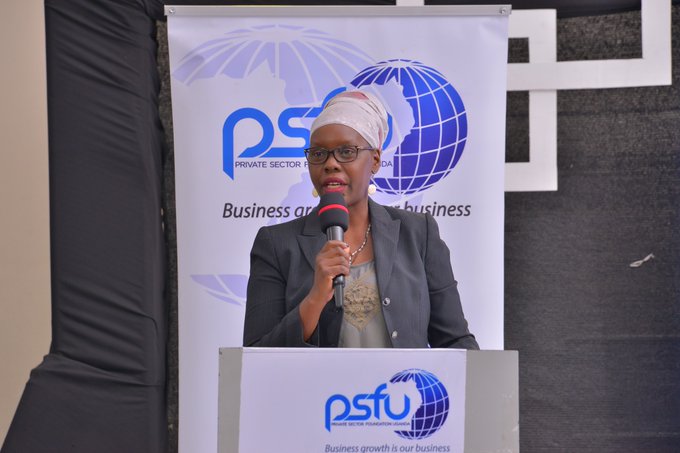
“As the Foundation, we actively participated in the pre-budget consultations led by the Ministry of Finance, Planning and Economic Development,” said Kongai. “Our policy briefs focused on key sectors like commercial agriculture, industrialisation, and export competitiveness.”
“We strongly called for pro-investment policies, enhanced support for industrial research and development, and meaningful efforts to reduce the regulatory burdens that continue to hold businesses back,” she added.
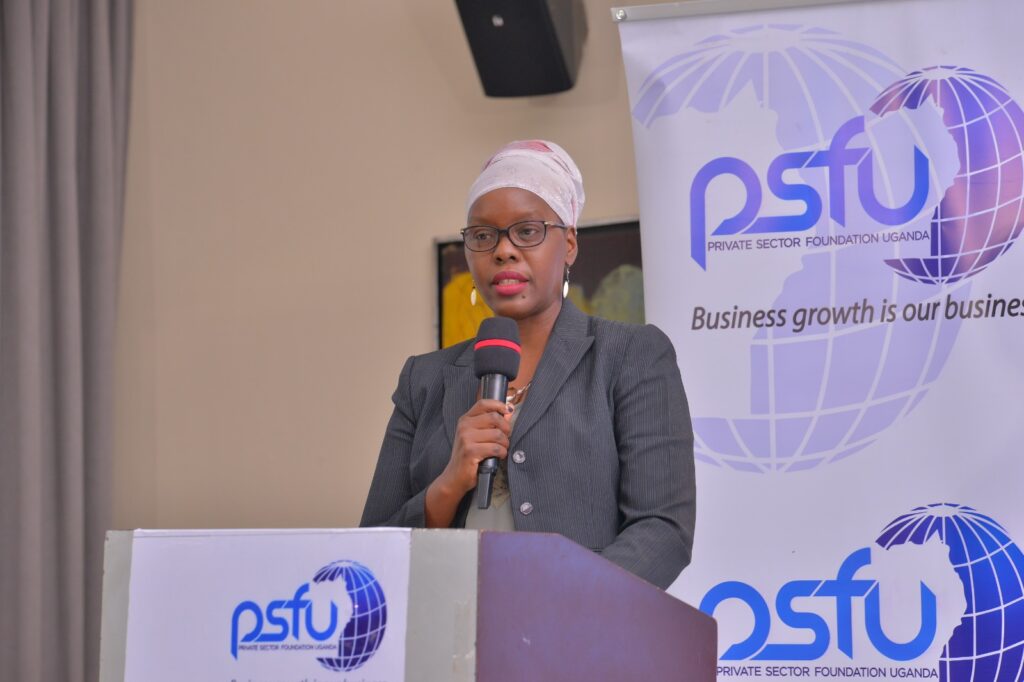
The documents were instrumental in informing government strategies, highlighting risks, and setting priorities aligned with Uganda’s growth agenda. “Our work has been to ensure the budget reflects the needs and realities of the private sector, to unlock economic potential and create jobs,” Kongai stated, emphasising the Foundation’s role in sustained dialogue and advocacy across multiple sectors.
Government Responsiveness and Achievements
Following this, Stephen Asiimwe, CEO of PSFU, shared encouraging feedback on the impact of the private sector’s proposals. “I must say, we have scored over 85% in getting the government to accommodate our proposals in this year’s budget and tax policies,” he said.
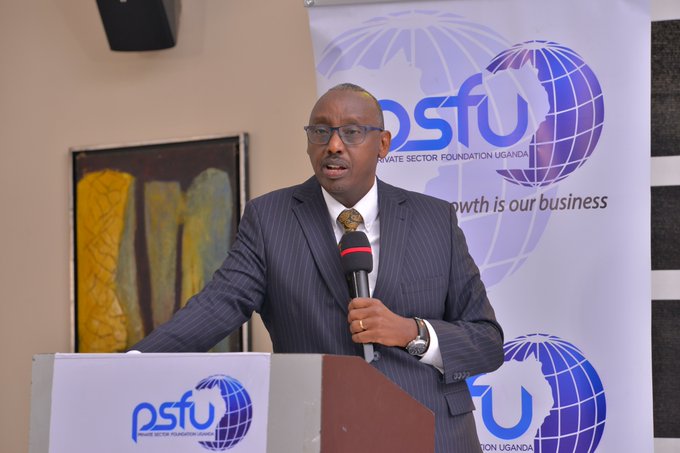
Asiimwe highlighted how such high incorporation rates reflect the productive partnership between PSFU and the government.
He reiterated the importance of the annual general meeting and continuous engagement with members, urging attendees to participate actively to hold leadership accountable and shape future policies. “This dialogue is not just a report-back session; it’s a call to action for all of us to keep pushing for a better business environment that supports growth and jobs,” he stressed.

Asiimwe further recognised the stabilisation of the Ugandan economy, attributing it to collaborative efforts that include improving infrastructure, enhancing industrial capacity, and supporting innovation. He acknowledged challenges such as regulatory bottlenecks but remained optimistic about ongoing reforms.
Empowering Women and Youth through Inclusive Growth
Serena Cavicchi, Task Team Lead for the Grow project and Senior Social Development Specialist at the World Bank, highlighted the pivotal role of the project in driving employment, especially for women, and its positive ripple effects on families and communities.
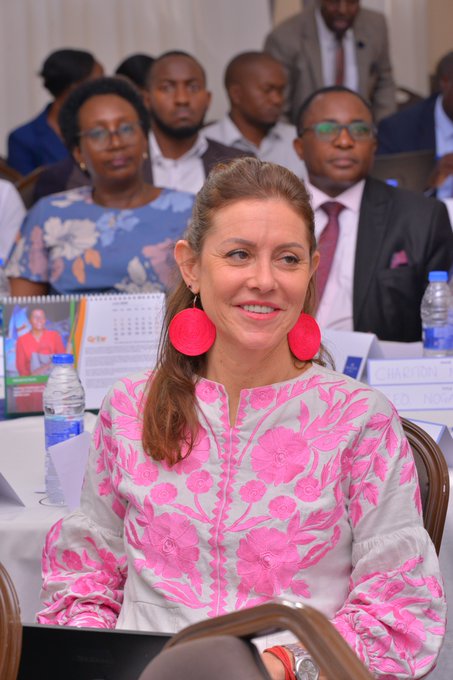
“The Grow project is not only supporting women entrepreneurs with business training and access to finance but also fostering innovation through platforms like the Innovation Expo and Innovation Lab,” she explained.
Cavicchi noted that efforts to create gender-friendly infrastructure, such as childcare facilities, are transforming the ecosystem to make it easier for women to participate fully in economic activities. “The data clearly shows that women have some of the highest loan repayment rates, so we need to stop treating them as high-risk borrowers. This perception is what continues to hinder their access to finance,” she said.
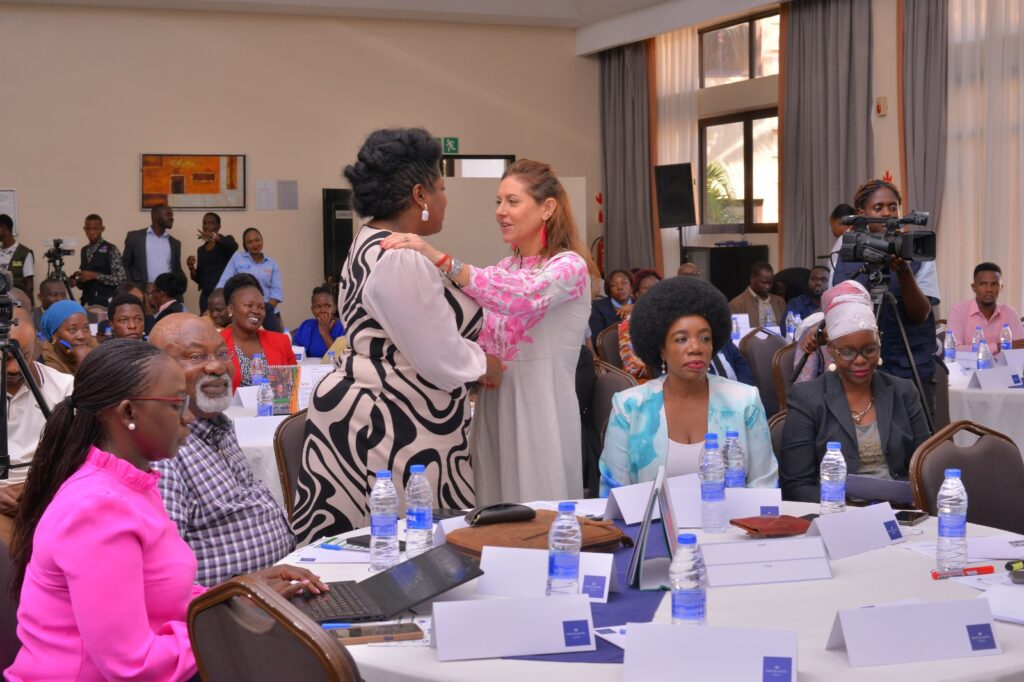
Cavicchi advocated for innovative financing models to further unlock capital and emphasised the project’s alignment with national priorities around industrialisation and digital transformation.
“Investing in women is not just the right thing to do — it’s the smart thing to do. Women’s economic empowerment fuels broader economic growth and job creation,” she asserted.
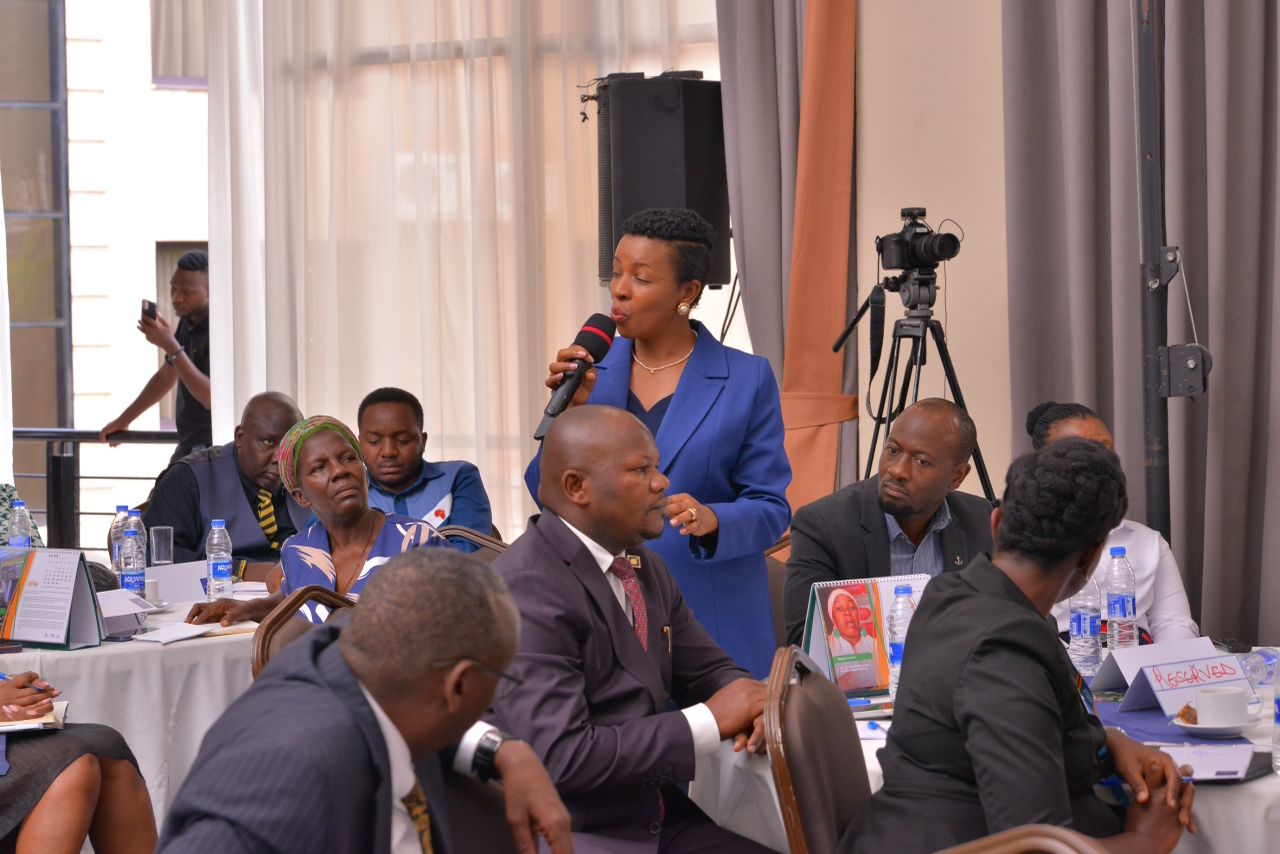
The dialogue concluded with renewed commitments to deepen public-private partnerships that unlock Uganda’s vast potential. The discussions made it clear that while progress has been made, continued focus is needed on removing barriers to investment, strengthening infrastructure, supporting digital transformation, and expanding markets — all critical drivers of sustainable job creation.
The event also reinforced the value of platforms like PSFU in bridging the private sector and government. Their role in conducting evidence-based advocacy and maintaining open channels for feedback ensures that policies remain responsive and inclusive.

